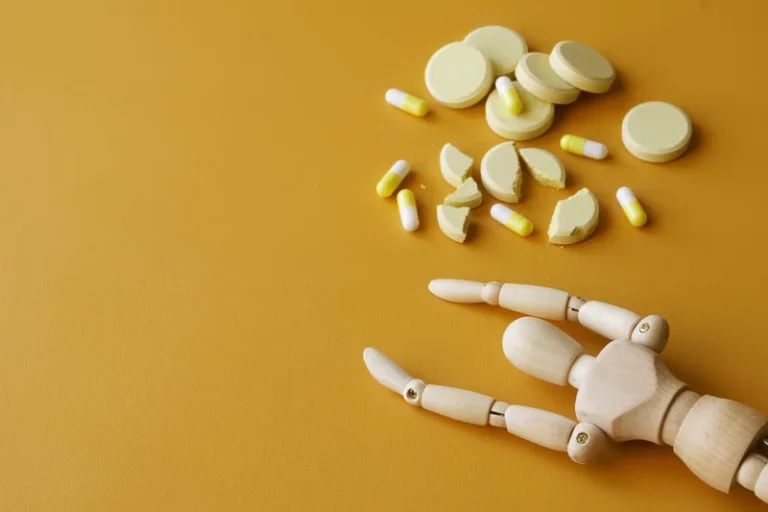Navigator NIAAA

Instead, it is produced by the leading U.S. agency for scientific research on alcohol and health, the National Institute on Alcohol Abuse and Alcoholism (NIAAA). Remember that changing long-standing patterns is hard, takes time, and requires repeated efforts. We usually experience setbacks along the way, learn from them, and then keep going. Ultimately, there is no one-size-fits-all solution, and what may work for one person may not be a good fit for someone else. Simply understanding the different options can be an important first step.
Types of Behavioral Treatments
- But friends and family may feel unsure about how best to provide the support needed.
- To get the answers to these questions, you’ll likely need to reach out and contact the facility or provider.
- These live-in facilities afford you stability and support as you learn relapse prevention strategies and get psychosocial treatments, such as group counseling or one-on-one sessions.
- These groups are a safe space where members can share experiences, learn from each other, and stay motivated.
- When considering the many types of alcohol rehab and treatment programs, remember that everyone’s needs are different.
- This manual provides guidelines for operating an opioid treatment program.
Including loved ones in the process can make a big difference in maintaining a supportive environment. With the right mix of support and resources, an aftercare plan helps people feel prepared to tackle the challenges of daily life one step at a time. SAMHSA’s programs and campaigns offer information, training, and technical assistance to improve the quality and delivery of behavioral health services across the nation. Interim care (meaning you need care right away but there isn’t an opening)Many treatment options have long waitlists, but can still help while you wait. Interim Alcohol Use Disorder care can provide daily medicine and emergency counseling to keep you safe until an outpatient, inpatient, or residential spot is ready for you.

The Interagency Coordinating Committee on the Prevention of Underage Drinking (ICCPUD)
Alcohol use disorder (AUD) is a health condition that is best assessed and treated by a health professional. In this section, learn more about AUD, the professional treatment options available, and why different people may take different routes to recovery. This activity provides 0.75 CME/CE credits for physicians, physician assistants, nurses, pharmacists, and psychologists, as well as other healthcare professionals whose licensing boards accept APA or AMA credits. Several studies highlight the need to refrain from imposing too many constraints on users if an intervention is to be both acceptable and effective.
E-Health Alcohol Treatment Tools*
Residential treatment involves living at a treatment or rehab facility while undergoing treatment during the day. These live-in facilities afford you stability and support as you learn relapse prevention strategies and get psychosocial treatments, such as group counseling or one-on-one sessions. An alcohol rehabilitation program can be =https://ecosoberhouse.com/ the right first step toward sobriety. These programs can provide support, counseling, education, and accountability as your recovery begins. Typically, you can choose between inpatient and outpatient rehabilitation. When seeking professional help, it is important that you feel respected and understood and that you trust the person, group, or organization to help you.
- We used the Preferred Reporting Items for Systematic Reviews and Meta-analyses extension for scoping reviews guidelines (PRISMA-ScR) 2020 statement to report the method section 21 see additional file n°1.
- It may also involve more intensive options, like professional monitoring or regular check-ins if needed.
- The average cost of alcohol-related rehabilitation depends on many factors.
- Studies show that people who have AUD are more likely to suffer from major depression or anxiety over their lifetime.
- The use of financial and material incentives raises questions as to the long-term viability and efficacy of interventions after the researchers are gone.

Check to see if the program relies on evidence-based treatments, such as CBT, multidimensional family therapy, or acceptance-commitment therapy (ACT). For people who are living with AUD and who are concerned about withdrawal symptoms or the strong temptation to drink again, alcohol rehab programs can help provide the tools needed for sobriety. However, doctors typically agree that staying in rehab longer leads to better outcomes, no matter the type of rehab you choose. This means people often see better results from months in outpatient rehab than from just a week or two spent in inpatient rehab.
Inpatient vs. outpatient alcohol treatment

Sometimes, the structure of alcohol rehabilitation programs can provide the tools people need for sobriety. Department of Health and Human Services (HHS) Substance Abuse and Mental Health Services Administration (SAMHSA) provides a website and a toll-free telephone number for information/treatment referral assistance for substance misuse/addiction and/or mental health problems. Regardless of where or how you seek treatment, it’s important to look for approaches that are “evidence-based.” This means the treatments are backed by large, well-designed studies. Brief Interventions are short, one-on-one or small-group counseling sessions that are time limited. The counselor provides information about the individual’s drinking pattern and potential risks. After the individual receives personalized feedback, the counselor Alcoholism Treatment Program will work with them to set goals and provide ideas for helping to make a change.

In this type of setting, you can readily have access to medical and psychiatric services. The authors of this article searched the electronic databases of relevant peer-reviewed research literature including PubMed and MedLINE. The initial database search used keywords “substance use disorders and peer support”. We also cross-checked our inclusion list by running similar searches containing specific substance names as keywords (eg, cocaine, alcohol, and heroin) to ensure comprehensiveness.
- Some people are surprised to learn that there are medications on the market approved to treat AUD.
- However, there are a number of alcohol treatment options available for those in need, ranging from medical detox to residential inpatient, partial hospitalization, intensive outpatient, and standard outpatient treatment programs.
- Cognitive–behavioral therapy can take place one-on-one with a therapist or in small groups.
- Everyone deserves the highest quality of treatment, marked by clinical excellence, and our approach to treatment allows individuals to work toward recovery in a safe, supportive and welcoming community.
- You might be transferred “down” to outpatient service from an intensive inpatient service after showing signs of progress.
NIAAA
SP, AF, FS, SM; LLT, AA, JMF, NS were involved in collecting and analyzing the data. The first author (SP) conducted the two steps, the analysis was discussed and refined with the other authors. Mayo Clinic works with hundreds of insurance companies and is an in-network provider for millions of people.



Add Comment
You must be logged in to post a comment.